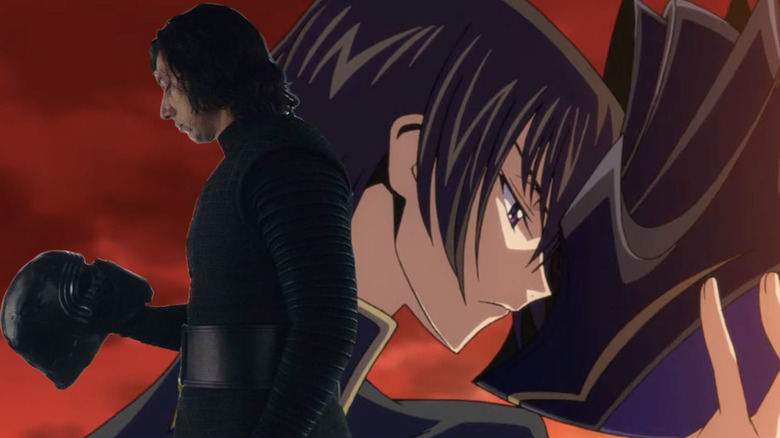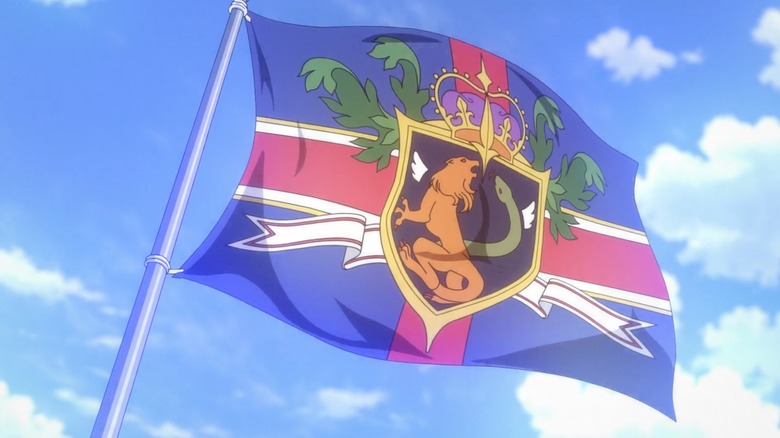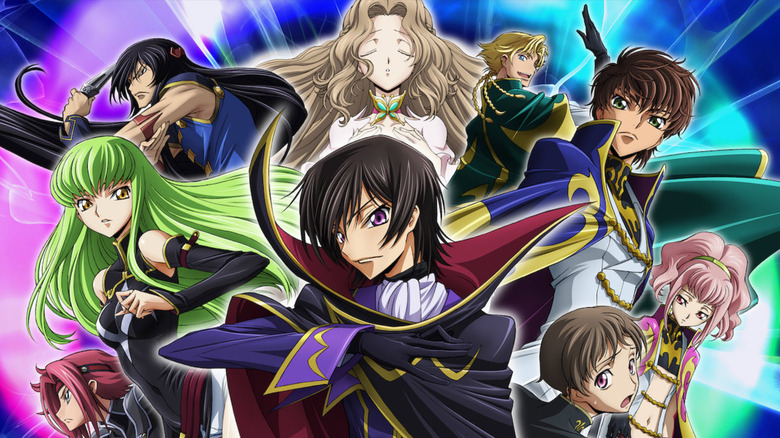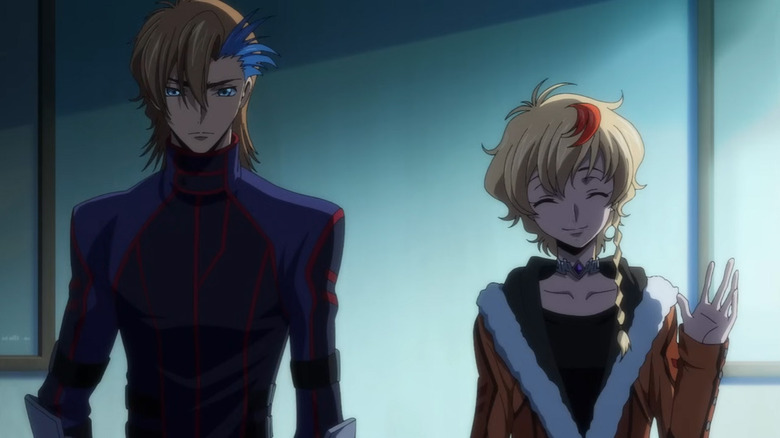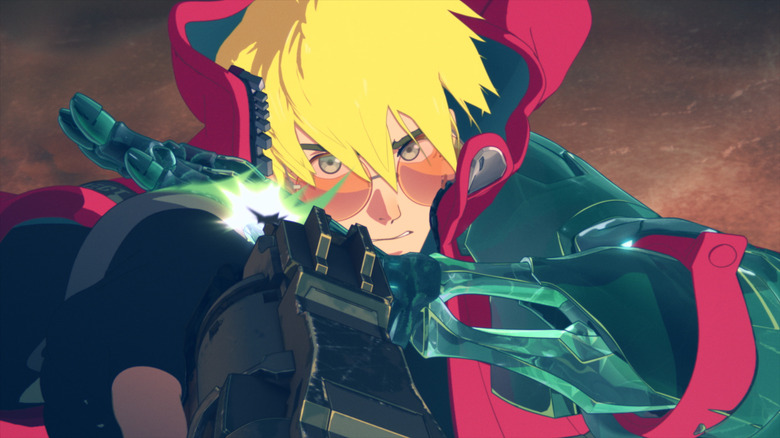How A Classic Anime's New Season Echoes Star Wars: The Force Awakens
A trend that arose in Hollywood during the 2010s was the "legacy sequel," which has led to some not-so great results. A legacy sequel is a sequel made long after the previous film that acknowledges the passage of that time. If old characters/actors return, they'll have aged into a mentor for younger leads who fill the character archetypes of the original film.
In his 2019 New York Times Op-ed, "I Said Marvel Movies Aren't Cinema. Let Me Explain," director Martin Scorsese said the films of the Marvel Cinematic Universe "are sequels in name but they are remakes in spirit." So are legacy sequels.
Some of the last decade's legacy sequels include "Terminator: Dark Fate," David Gordon Green's "Halloween" trilogy and subsequent "The Exorcist: Believer," and the one that really kicked off this trend, 2015's "Star Wars: Episode VII — The Force Awakens." By now, director J.J. Abrams has long revealed himself as an emperor with no clothes. By making "The Force Awakens" in the unimaginative way he did, when the movie was destined to be the billion-dollar blockbuster it was, it helped push Hollywood further along on its path to rose-tinted creative bankruptcy.
The "Star Wars" well is running dryer these days and one plug Lucasfilm parent Disney is looking to employ is anime. One of its recent acquisitions — "Code Geass: Rozé of the Recapture" — proves that as anime has become more international, it may be picking up Hollywood's bad habit.
"Code Geass" is a mecha-anime franchise (created by studio Sunrise, home of "Gundam" and "Cowboy Bebop"). The series began in 2006 with its first TV series, subtitled "Lelouch of the Rebellion," which ran for two seasons and concluded in 2008. "Rozé of the Recapture," so far, follows "Lelouch of the Rebellion" the same way "The Force Awakens" did "Return of the Jedi."
The alternate history of Code Geass, explained
"Code Geass" takes place in an alternate history where Britain won the Revolutionary War. Not exactly an unturned stone for speculative fiction, but "Code Geass" adds further wrinkles. In this timeline, the British Empire then lost the Battle of Trafalgar in 1805 to the French and Spanish, paving the way for Napoleon to invade and conquer the British isles. The British royal family and nobles fled to the 13 colonies, which they remade into the imperial base of the new Holy Britannian Empire (named in the vein of the Holy Roman Empire, another "successor" empire).
This backstory is necessary context for "Code Geass" but it's not something the show concentrates on. The series is really a story about the country of its creation, Japan. In the 21st century, Britannia (a country made in the image of King Arthur and Charles Darwin) rules a third of the world, including Japan (rebranded "Area 11" to kill its national identity).
Lelouch vi Britannia, an exiled prince and the series' lead, lives in Japan under the guise of a normal high school student. He passes the days caring for his sister Nunnally and plotting unreachable revenge on his father, Emperor Charles, for the death of his mother, Lady Marianne. Until one day, he meets the immortal witch C.C., who grants him "the power of a king" — Geass (a magical contract taken from Celtic mythology). With his new power, Lelouch can take away someone's free will and give them a single command they must obey.
Lelouch adopts the masked persona of "Zero" and takes leadership of Japanese rebels, renaming them the Black Knights. (I'm near positive that "Zero" is a reference to Zorro, another masked vigilante who, in his public life, belongs to the privileged class of people he fights against.)
Why Code Geass was such a big hit
"Code Geass" is a flawed series but it's also an immensely popular one. The finale — "Re:" — is especially beloved for its bittersweet conclusion where Lelouch, even in defeat, wins. Why, then, is it so well-liked that it's still inspiring new works almost 20 years later?
For casual viewing, "Code Geass" is a fast-paced and twisty show that's easy to binge. The series' style (artist group Clamp was the in-house character designer) is distinctive and cool too, stylized without being abstract (just look at any Britannian's outfit). "Code Geass" also arrived at the right time to be a formative international hit for American anime fans; anime was inching towards the mainstream in the 2000s thanks to Adult Swim, where "Code Geass" aired. For younger viewers, anime like "Code Geass" (i.e. cartoons with story arcs, morally conflicted characters, and unique stylish verve) can redefine their perception of what a cartoon is.
There's also that "Code Geass" isn't easily pinned down in one genre; I've called it one of the most anime shows because of how many different cliches it proudly uses. An easy comparison is that the show is "Death Note" (a teenage mastermind gets secret power over life and death) plus "Gundam" (most of the fights in the show are carried out with two-story mechas called Knightmares). Battles in "Code Geass" are fought both with fisticuffs and in front of chess boards.
Then there's Lelouch's relationship with Suzaku Kururugi (son of the late Japanese prime minister, now working for the Britannians to earn his keep). Their dynamic is both a shonen rivalry and a Yaoi-coded foe-mance. Speaking of, "Code Geass" also devotes plenty of time to high school soap opera — between that and Lelouch's secret identity as Zero, it sometimes feels like a superhero cartoon.
Code Geass: Rozé of the Recapture is an anime legacy sequel
Spoilers for "Code Geass: Rozé of the Recapture" begin here.
"Code Geass" was already a franchise before "Rozé of the Recapture." In 2017 to 2018, Sunrise put out a film trilogy that retold the story of "Lelouch of the Rebellion" in six hours instead of 20. That meant some story changes, but the biggest was a new epilogue film: 2019's "Lelouch of the Re;surrection," which carried on from the films' alternate timeline. "Rozé," in turn, follows on from that film.
"Rozé of the Recapture" opens by recapping the results of the original "Code Geass," where Britannia fell and splintered, most of its old territories joining the new United Federation of Nations. But three years after "Re;", the narrator tells us, some disgruntled Britannian nobles and soldiers invaded Hokkaido (Japan's northernmost island), erected an energy barrier around the island, and declared themselves the Neo-Britannian Empire.
So, the defeated evil empire is back but in a diminished state? Sounds a lot like the First Order to me. As for the heroes, Rozé is introduced as a mercenary working beside his older Knightmare pilot brother Ash. Like Lelouch did in the original, they join with some plucky Japanese rebels working against the Britannians.
Then, in a first episode twist, it's revealed "Rozé" is just a disguise for the Japanese princess Sakuya Sumeragi. Neo-Britannia stole someone precious from the princess and she's working to recapture them. Sakuya is not only disguised royalty like Lelouch was, she shares his affinity for chess, his quick-thinking puppet master mind, his loyalty-inducing Geass, and even his looks. She is the Rey (Daisy Ridley) to Lelouch's Luke (Mark Hamill).
Two of the 12 episodes of "Rozé of the Recapture" have been released in the U.S. so far. Characters from the original "Code Geass" haven't appeared yet, but I think it's only a matter of time.
Code Geass isn't the only recent anime remake
Now, remakes/legacy sequels aren't unheard of in anime. Take how Studio Bones first adapted the manga "Fullmetal Alchemist" as an anime in 2003, and then again in 2009 as "Fullmetal Alchemist: Brotherhood." There were similar remakes of "Hellsing" and "Hunter x Hunter," just to name a few.
Here's the thing, though; anime is often made to market the manga it's based on. That was why "Fullmetal Alchemist" et al. got a second series; the original manga was still running, so the publisher had a vested interest in promoting it. "Code Geass" is a rarer original anime series. It's become a brand on its own strength — that and producers banking on nostalgia.
It's not alone either; the past few years have seen many older anime series be rebooted. Take Studio Orange's "Trigun: Stampede," which in 2023 reimagined the original anime space Western in 3D. It got made not to promote the "Trigun" manga (which author Yasuhiro Nightow wrapped in 2007), but because the original was a beloved hit, especially in the U.S. "Rurouni Kenshin" (about a swordsman in Meiji-era Japan) got a second anime in 2023; that one has a lot more problems than lack of imagination.
(Content warning: "Kenshin" author Nobuhiro Watsuki was convicted of child pornography possession in 2017.)
A remake of Rumiko Takahashi's 1990s hit "Ranma ½" (about a gender-flipping martial artist) has also recently been announced, as has a new film from Studio MAPPA adapting classic historical manga "The Rose of Versailles" (previously adapted as a TV anime in 1979). And don't get me started on Netflix turning as many anime into live-action series as it can.
When stories get popular enough, they'll always be moneymen looking to regurgitate and strip mine them. Anime is no exception.
"Code Geass: Rozé of the Recapture" is streaming on Hulu and Disney+, with new episodes dropping every Friday.
